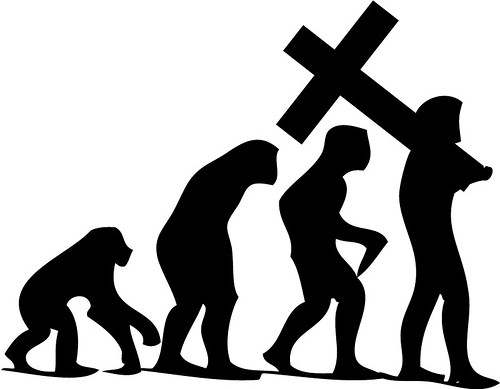
Monday in the 11th Week of Ordinary Time (II)
Retrogenesis
Readings: 1 Kings 21:1-16; Psalms 5:2-3ab, 4b-6a, 6b-7; Matthew 5:38-42
Picture: CC latvian
Yesterday I learnt a new word. I happened to tune in to the BBC while driving and heard an interview given by someone who has written a new novel about Alzheimer’s disease. The author described this debilitating affliction in terms of retrogenesis. That is, a process by which the growth and development of a human person is gradually and painfully reversed, to the point where the adult victim finally reverts to an almost embryonic state. Retrogenesis. The word comes to mind again as we meditate upon today’s Mass readings, because it helps to us identify more closely with them.
To begin with, perhaps I need to acknowledge that I may not resonate too easily with what I hear today, neither the first reading nor the gospel, at least not initially. Part of the reason for this is my tendency to focus only on the end-result. The first reading terminates in violent murder and ruthless thievery. And, sinful though I may be, I am neither a murderer nor a thief. In the gospel, Jesus speaks about a person who is able to turn the other cheek and go the extra mile. And, although I may basically be a good person, these are not quite my spontaneous reactions to being treated badly. Still, despite the difficulty, I know that these readings are about me, about us. And perhaps the way to appreciate this is to widen our attention beyond the end-result to the process that leads up to it. What we find when we do this is movement in two opposite directions: genesis and retrogenesis.
Retrogenesis is what we find in the first reading. Notice how it begins, rather innocuously, with someone initiating a commercial transaction. King Ahab desires to possess Naboth’s land. And he makes a reasonable – even generous – offer for it. I will give you a better vineyard… or… its worth in money. But Naboth refuses because this is ancestral land, which he is not at liberty to sell. Not everything can be traded commercially. It is Ahab's apparently harmless desire to possess that degenerates eventually into murder. And this process of retrogenesis takes place not just in what happens to Naboth, but more especially in Ahab and his wife Jezebel. Their desire to possess grows into an obsession that possesses (and gradually dehumanizes) them. Even if I may not identify so easily with the murderous end-result, can I not find in myself – if only at times – similar inordinate desires to possess? When the object of that desire is wealth, we call it greed. When it is sex or power, we call it lust. When it is food, we call it gluttony. And can we afford to forget that there is also such a thing as spiritual gluttony? A crude form of this is sometimes experienced at large religious gatherings, when people may jostle one another rather ruthlessly, just so that they might receive whatever is being distributed.
In contrast, what we find in the gospel is a movement in the opposite direction, a process of genesis. We are still listening to Jesus’ Sermon of the Mount. And we know how it began: Blessed are the poor in spirit, theirs is the kingdom of heaven. If retrogenesis is rooted in the inordinate desire to possess, genesis begins instead with an invitation to dispossession, to acknowledging one’s poverty in the sight of God. It is when one responds positively to this invitation that it becomes possible to do the remarkable things that Jesus enjoins us in the gospel today. To respond positively to God is to embark on a process of genesis, of becoming more human. And not just more human, but also more divine. For to allow ourselves to be dispossessed in this way is also to allow ourselves to be possessed more and more by the spirit of God, and so to be divinized even as we are humanized. While I may not be as perfect as Jesus requires in the gospel, do I not find in my heart – if only at times – stirrings in this direction?
In a world that often seems to revolve around the need to acquire and to accumulate possessions of all kinds, and pays the price in brutal conflict, cruel deprivation, and senseless loss of life, perhaps what we need to consider today is the direction in which we, as individuals and as a human community, are moving.
Is it genesis or retrogenesis that we are undergoing today?
When I first read the story of Ahab and his wife Jezebel from the Book of Kings, I thought to myself, hey it is playing out even today! Worse still, the guilty get away with their misdeeds, and society holds them up as models of those who have arrived.
ReplyDeleteOn the other hand, Jesus' Sermon on the Mount is diametrically opposite to world values. To the casual listener, it is advice on how to think and behave as a door mat, wall paper, or a plain loser. A cure for retrogenesis? Only if one can take the extremely bitter medicine to dispossess and to trust in the Divine Physician.